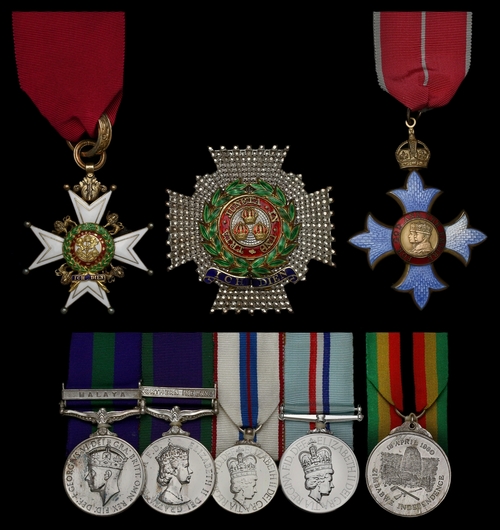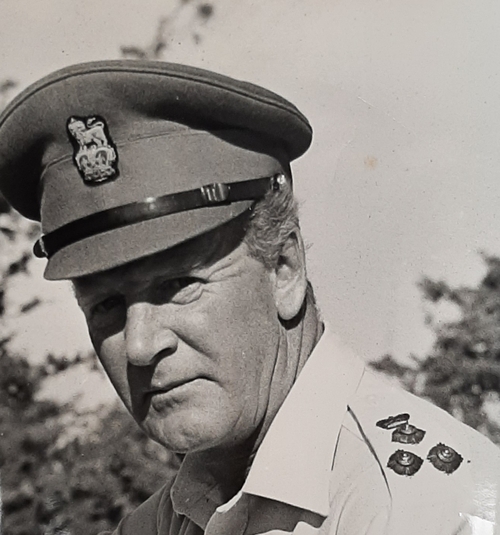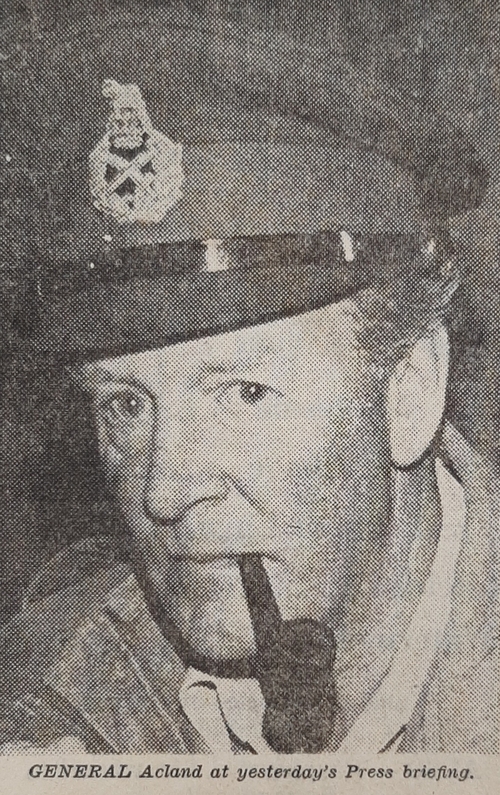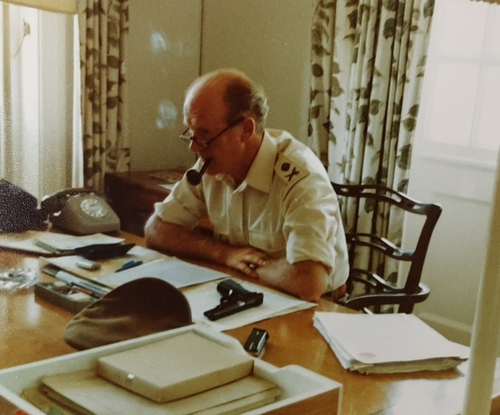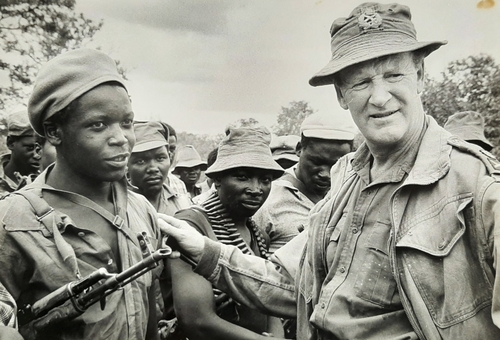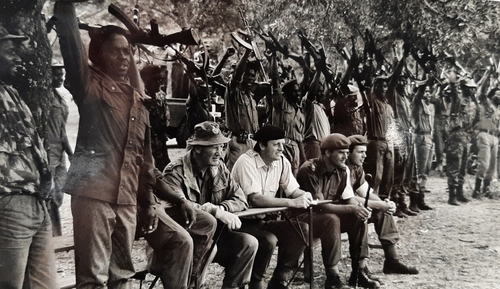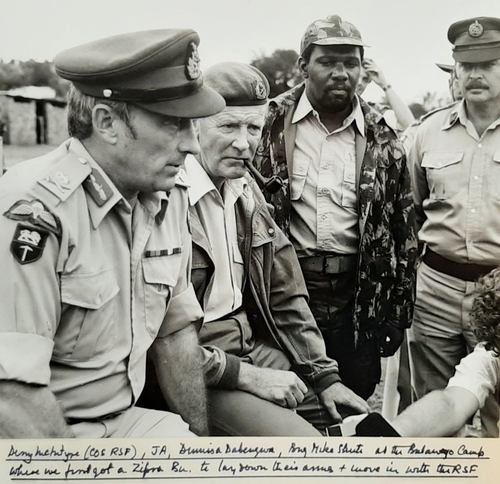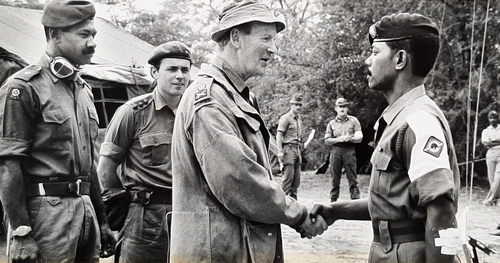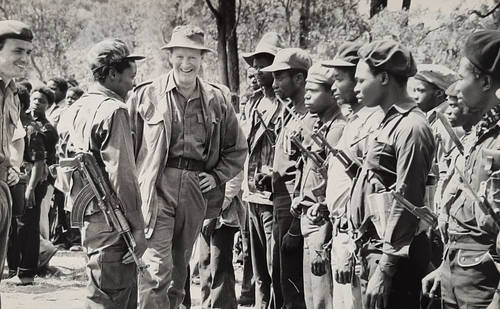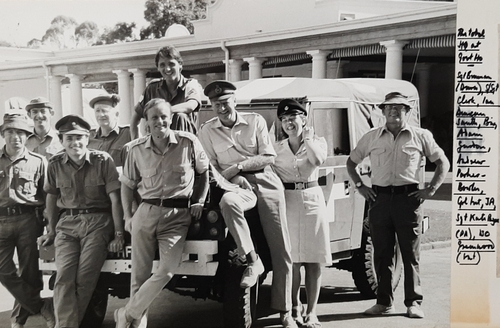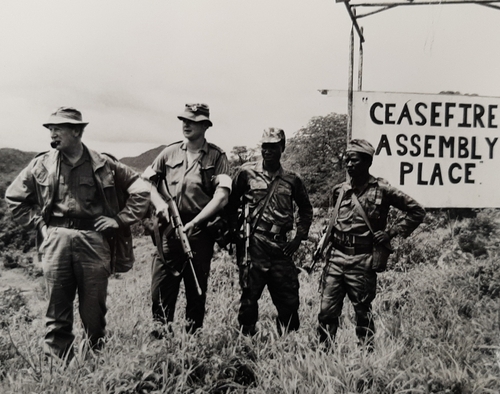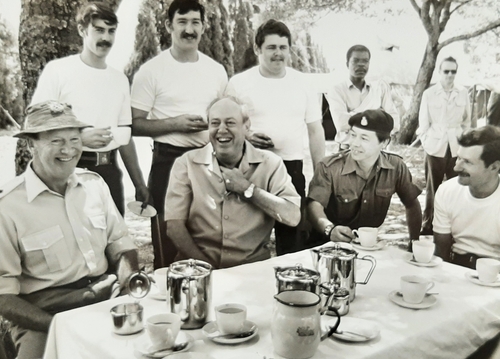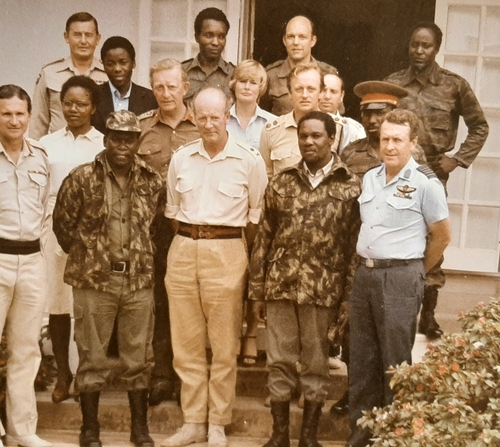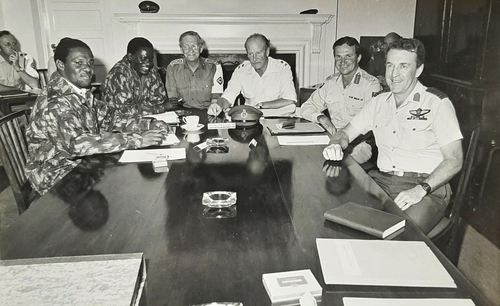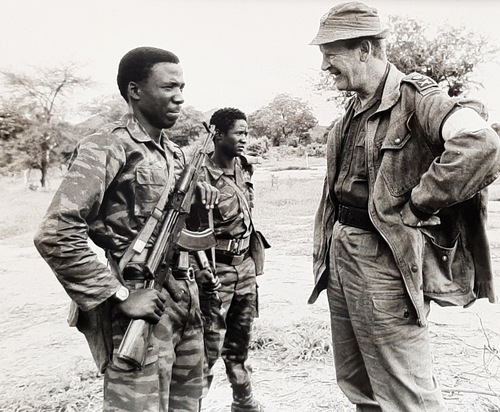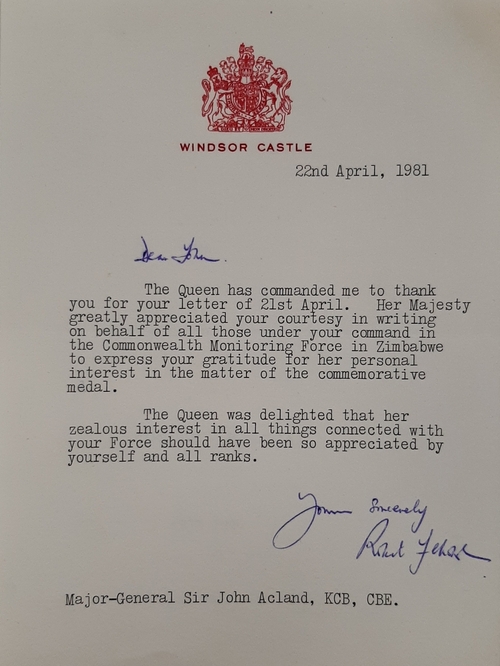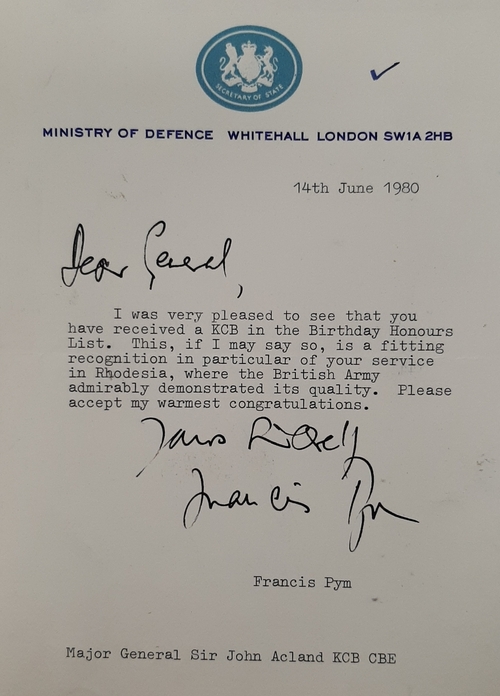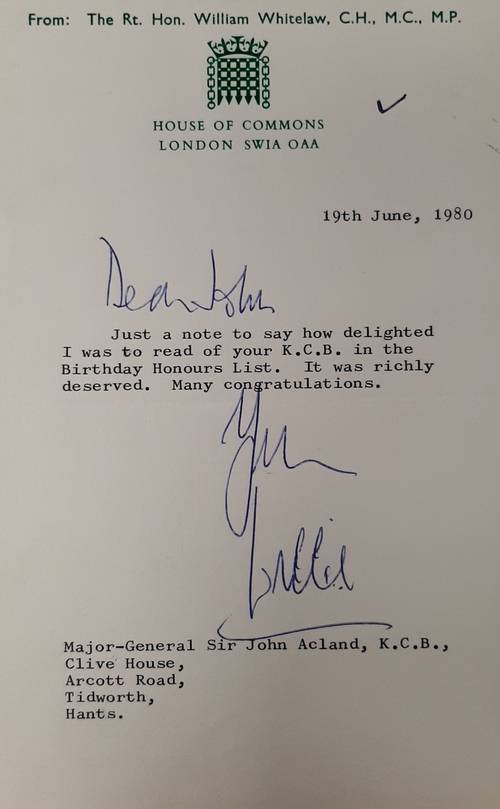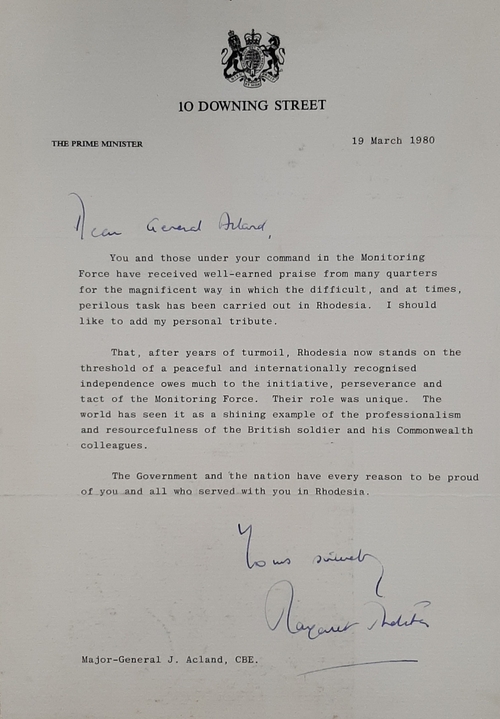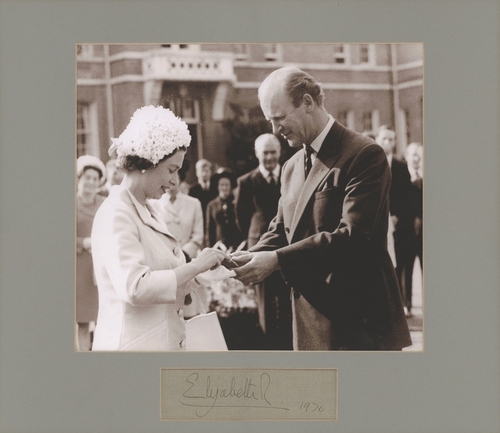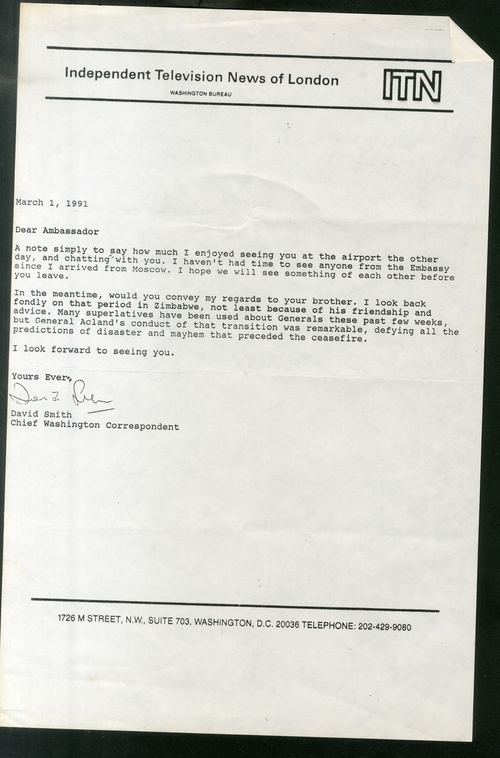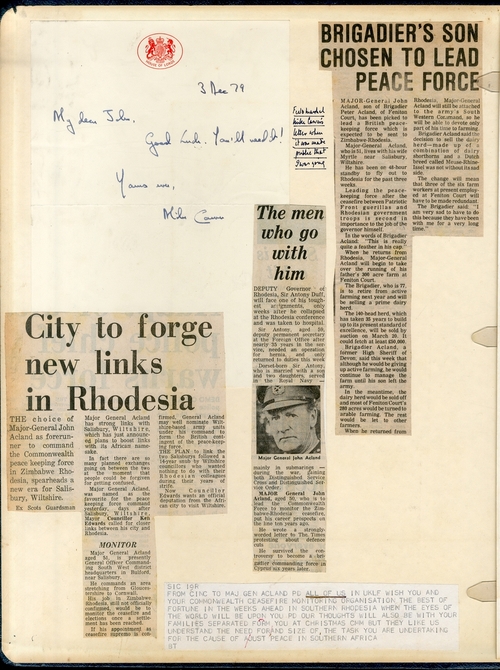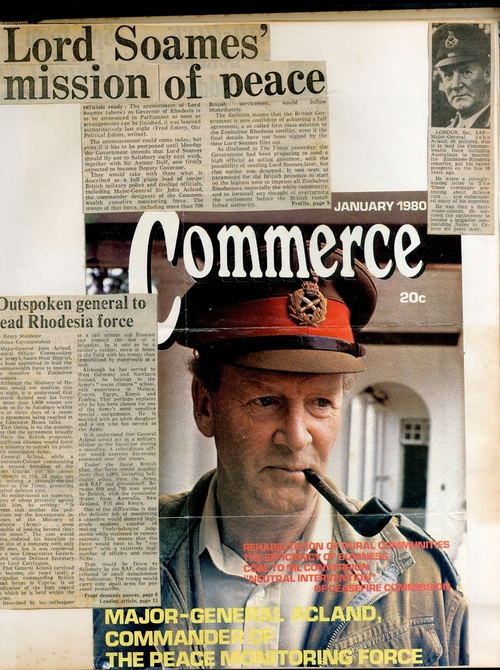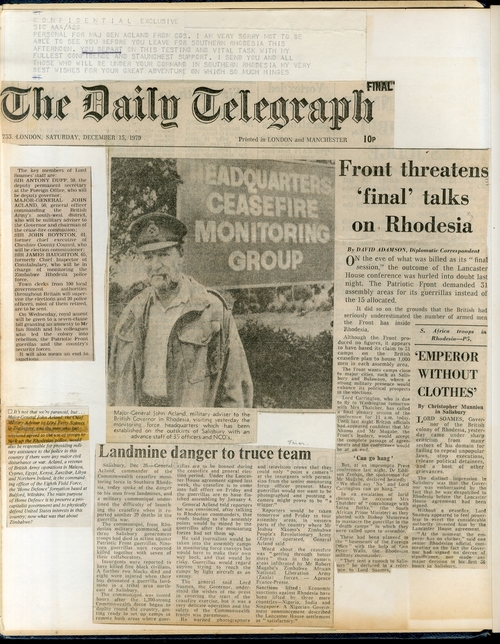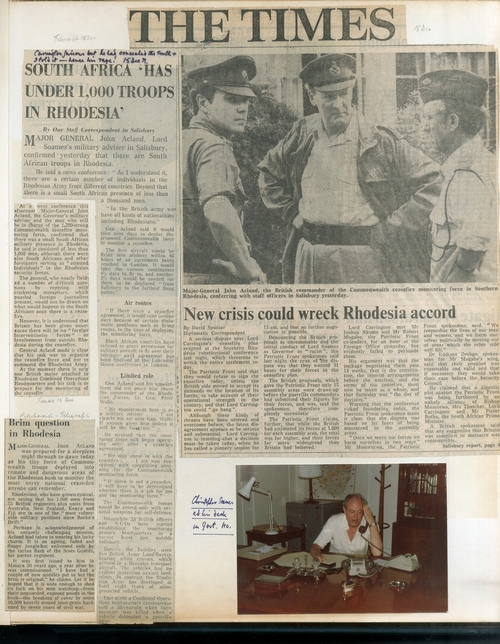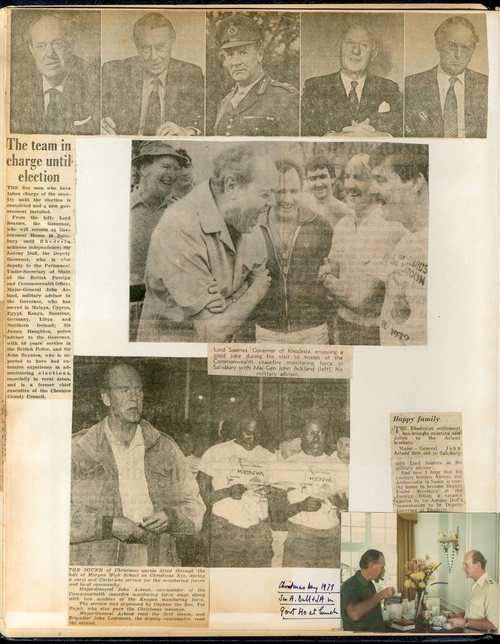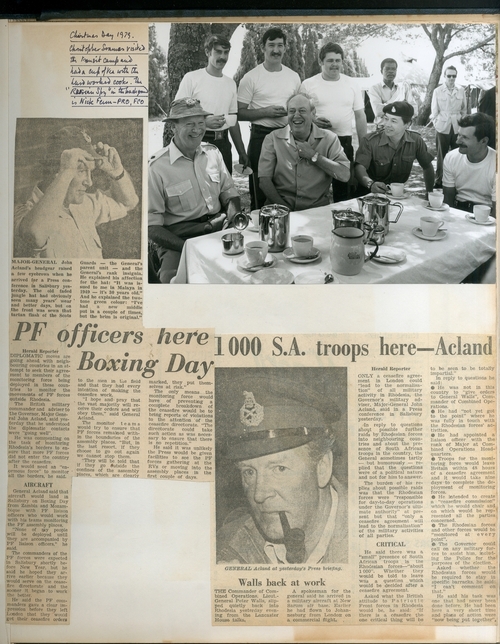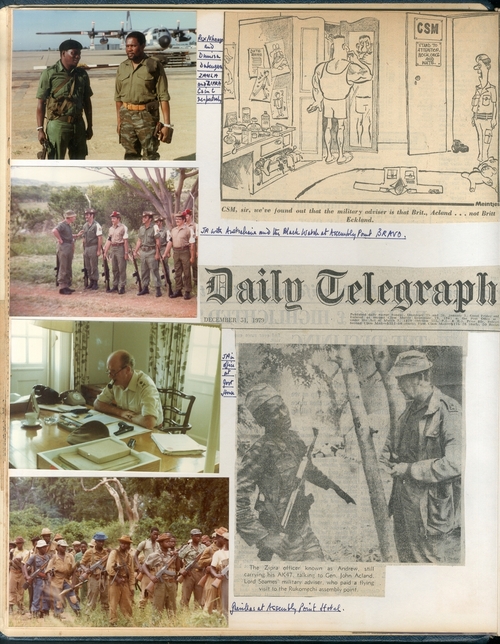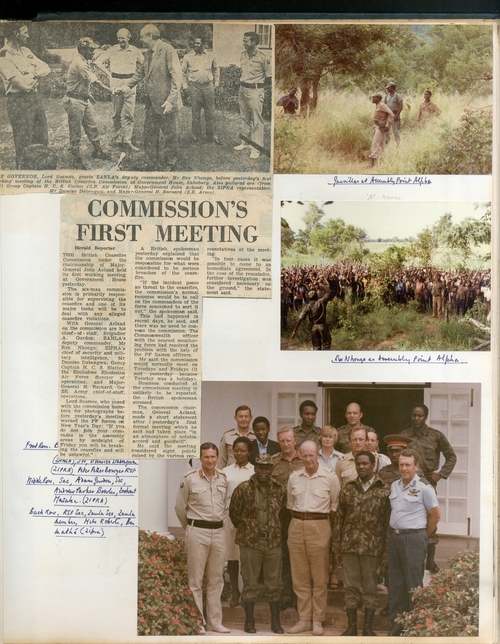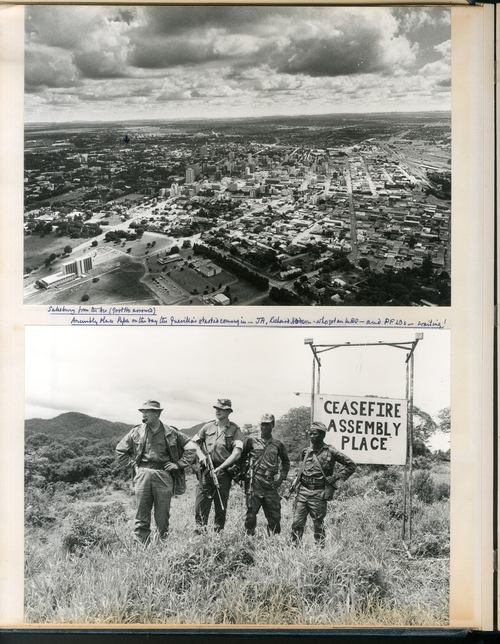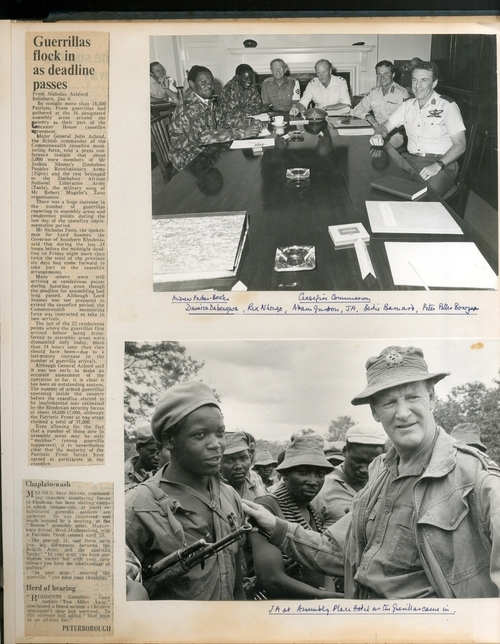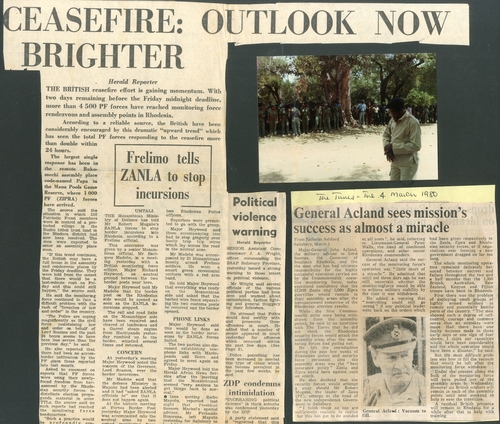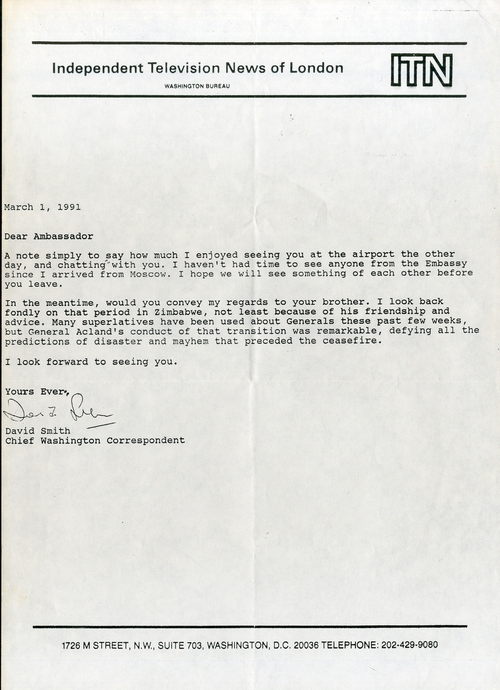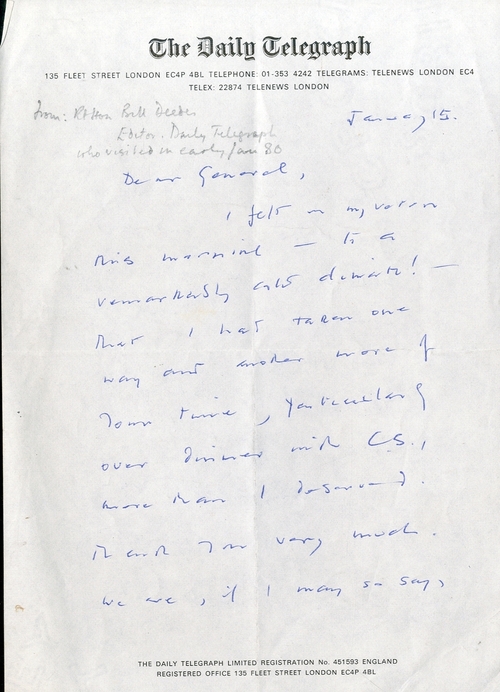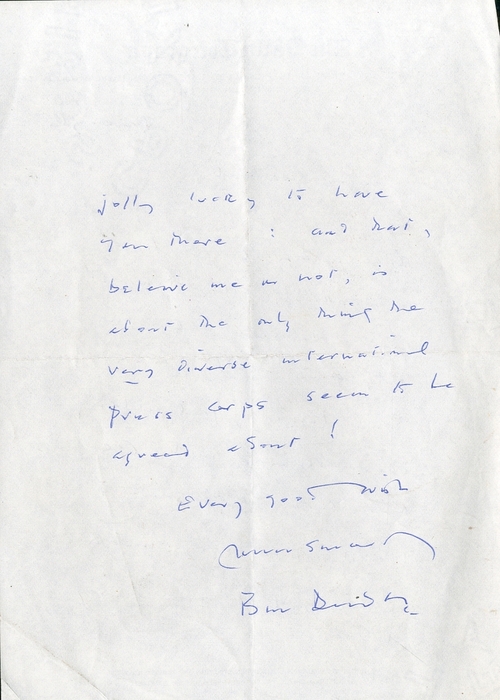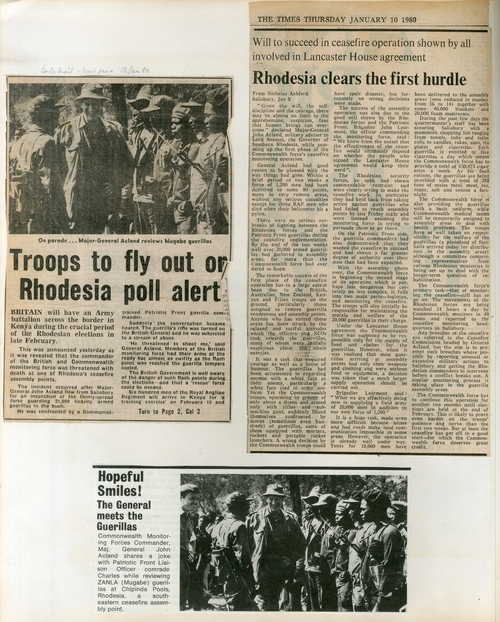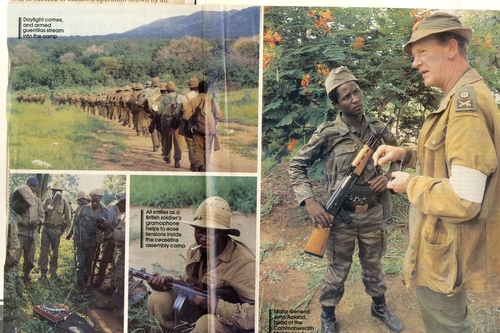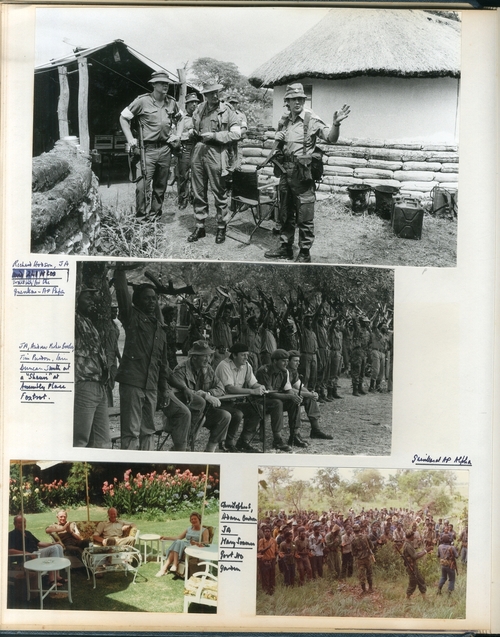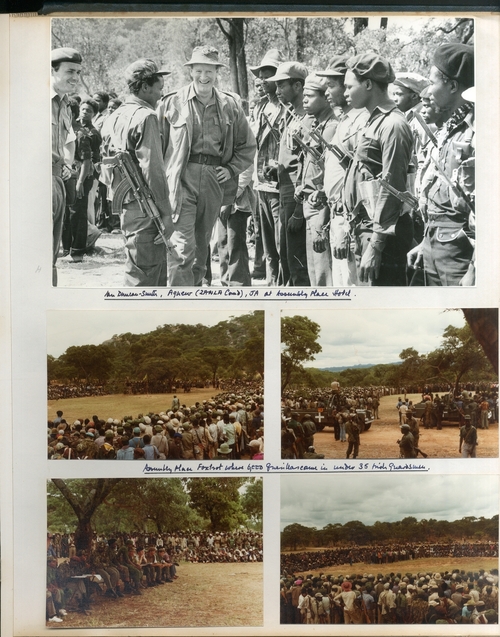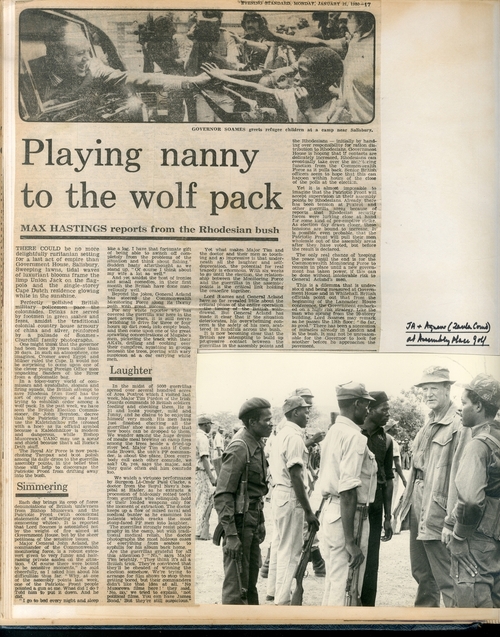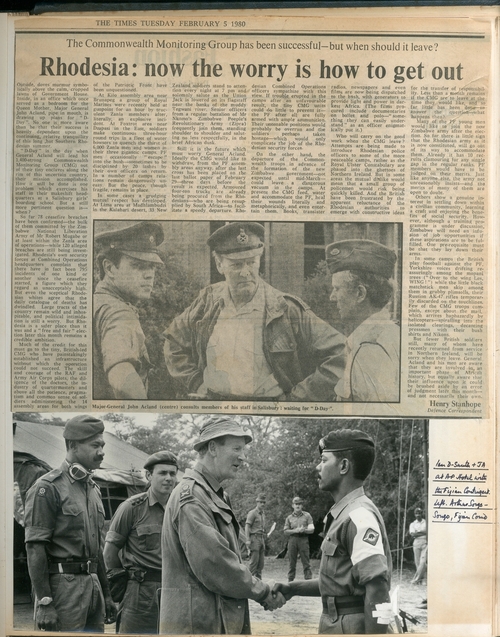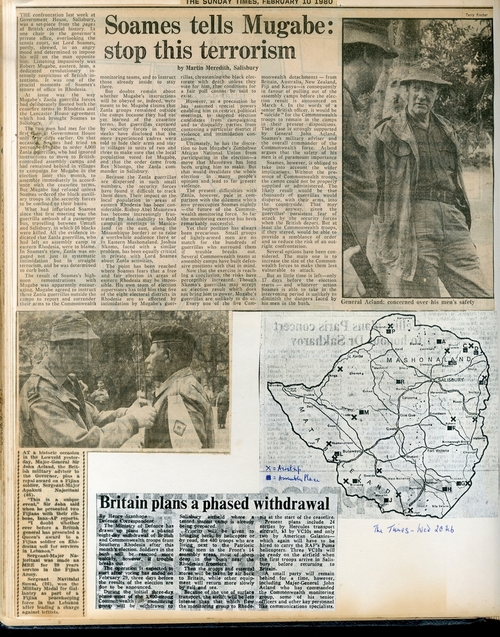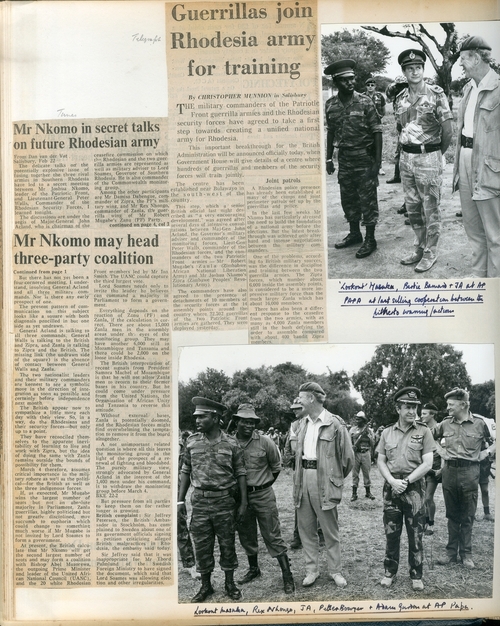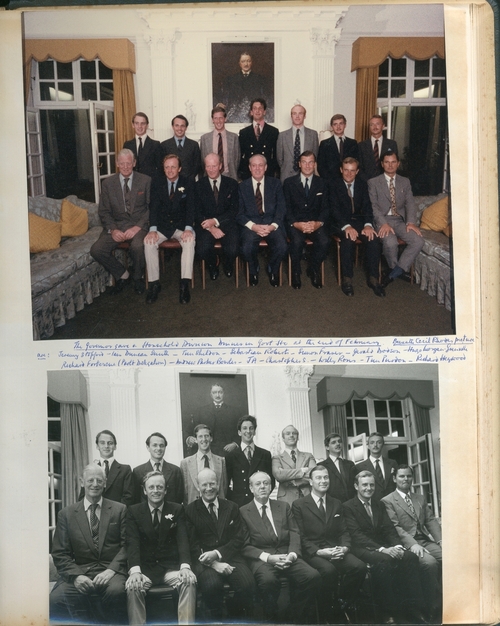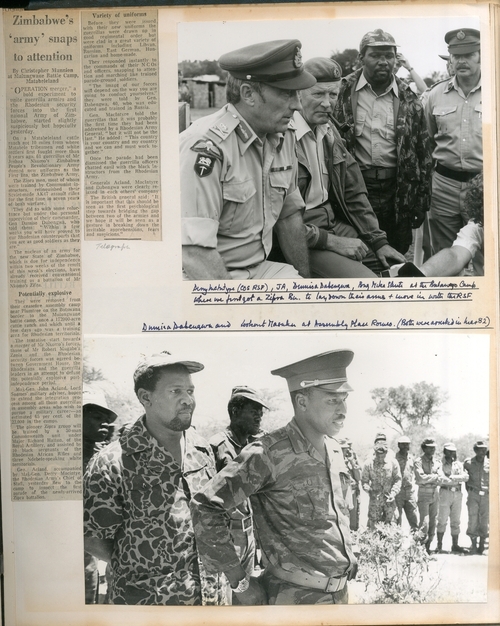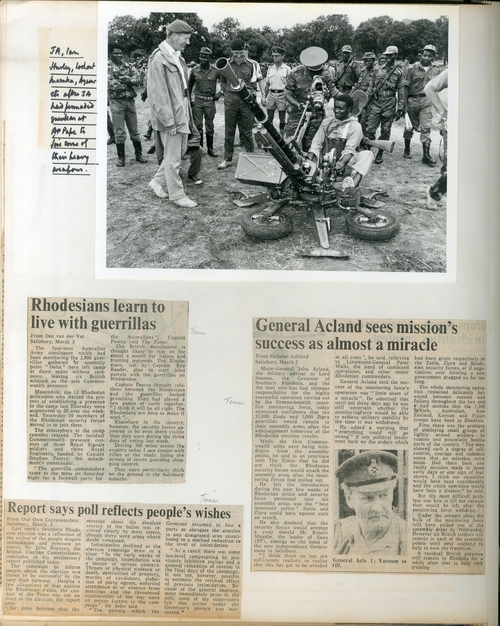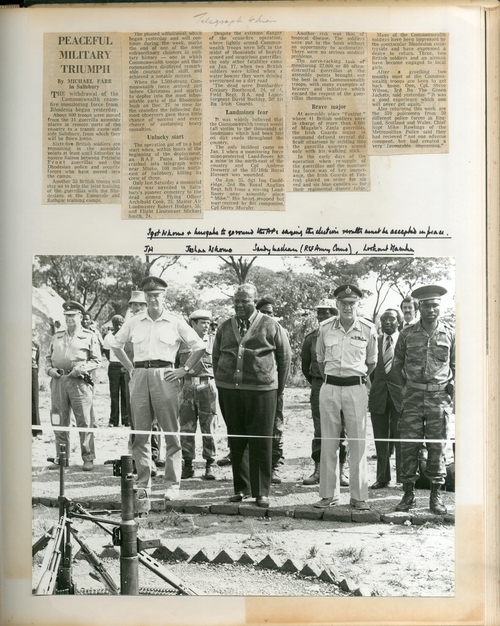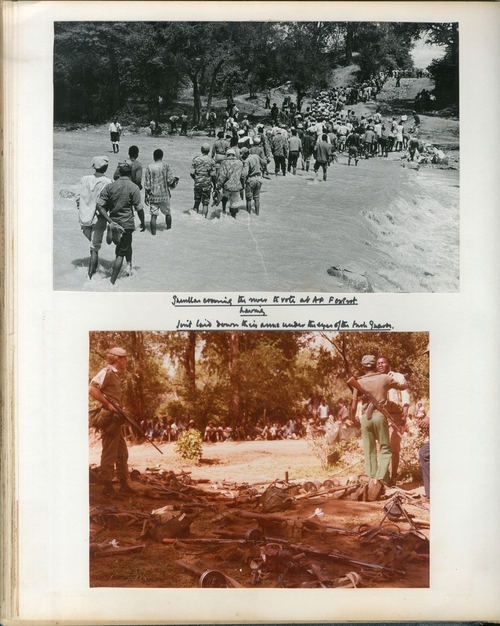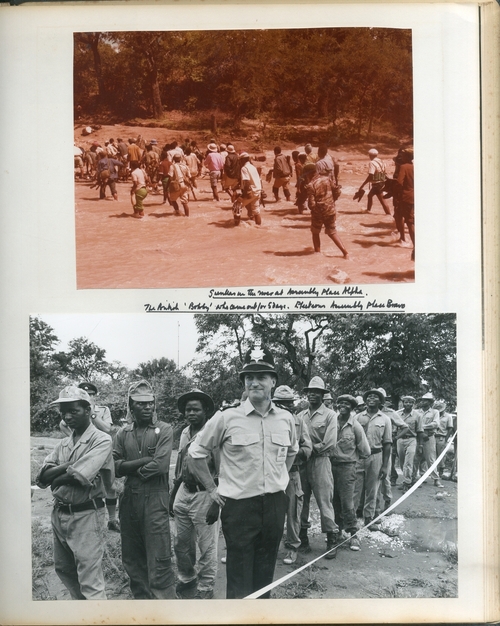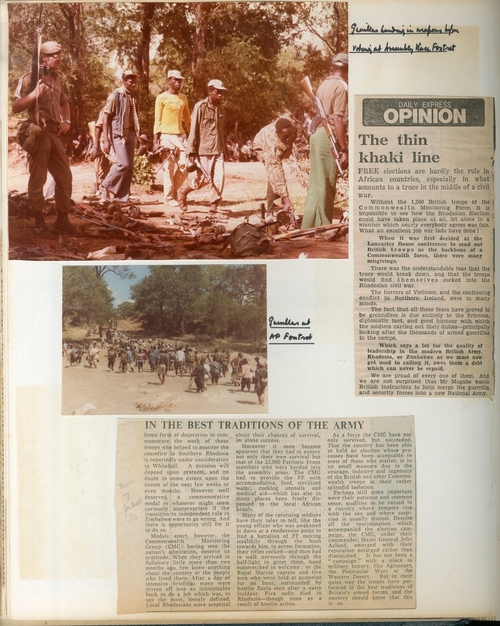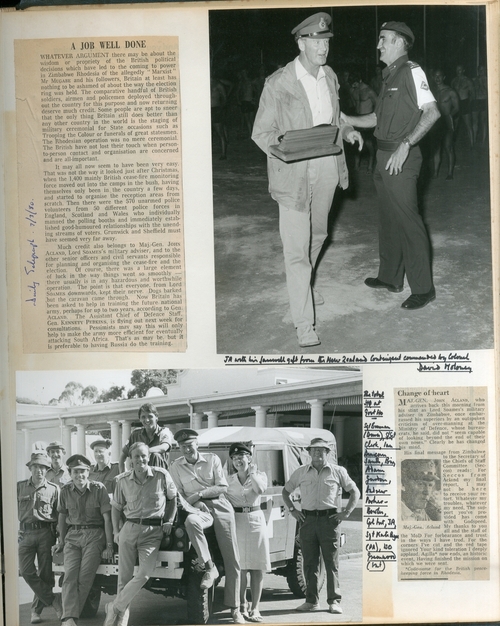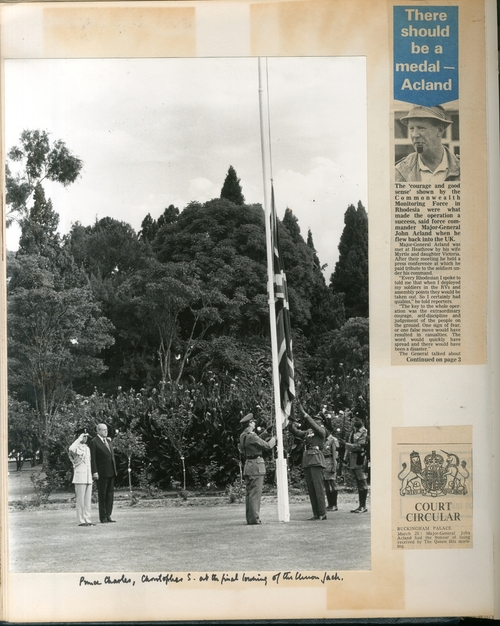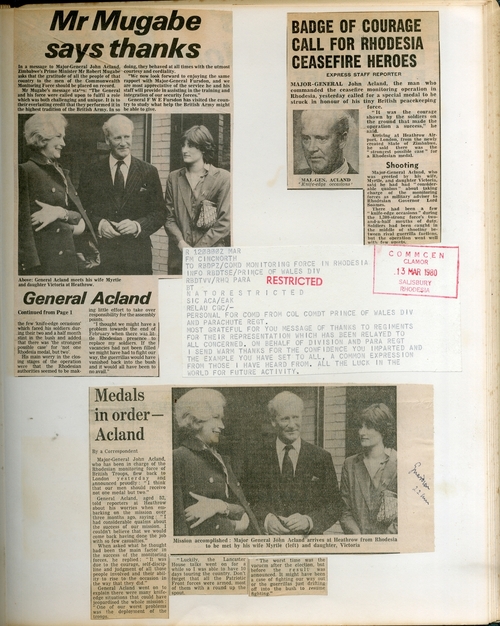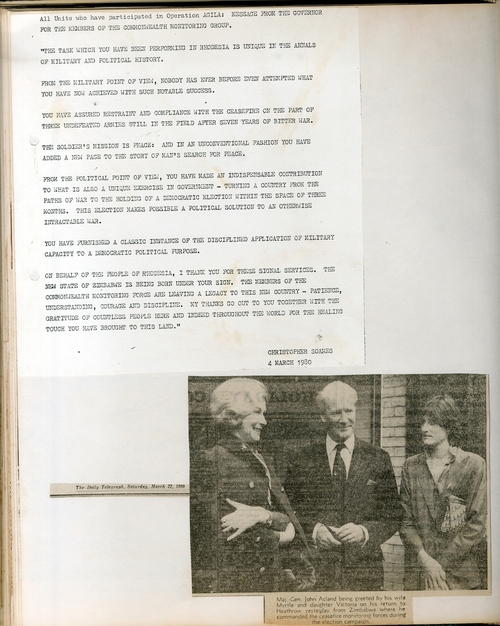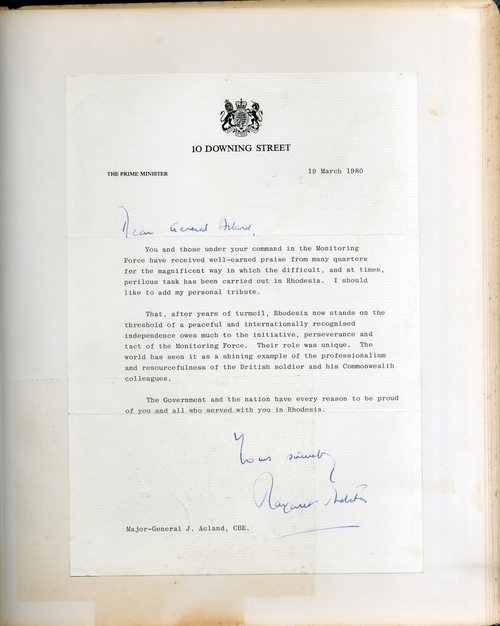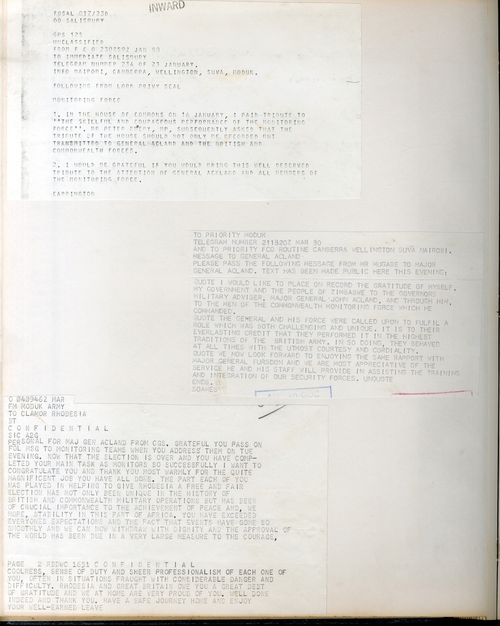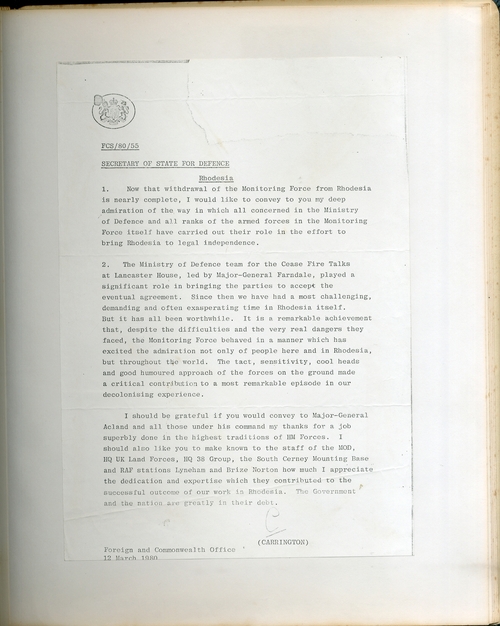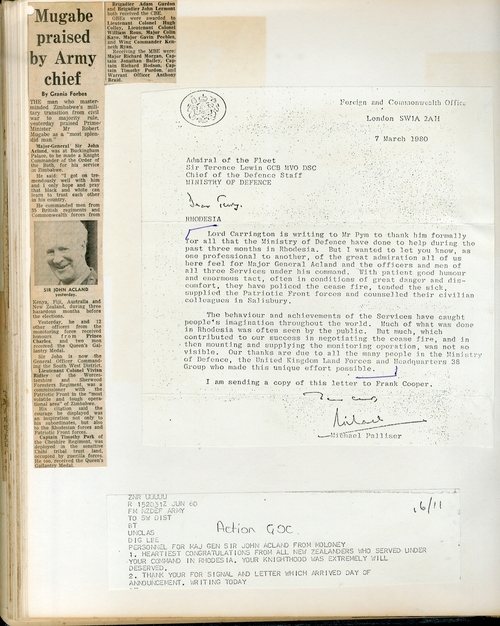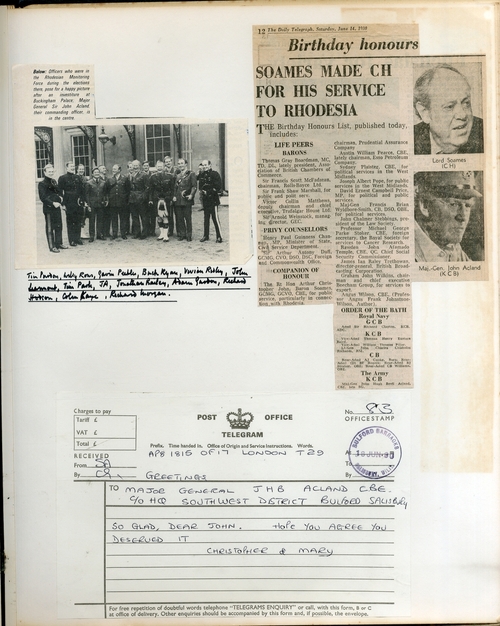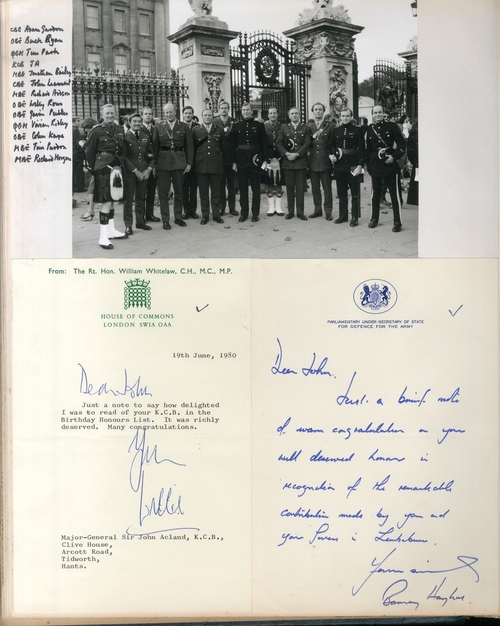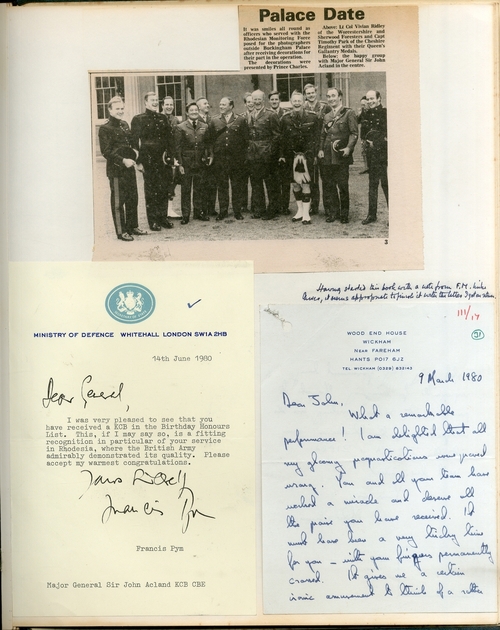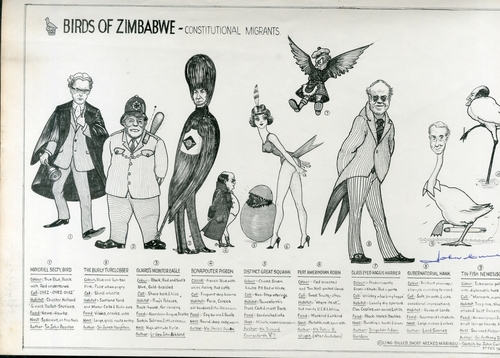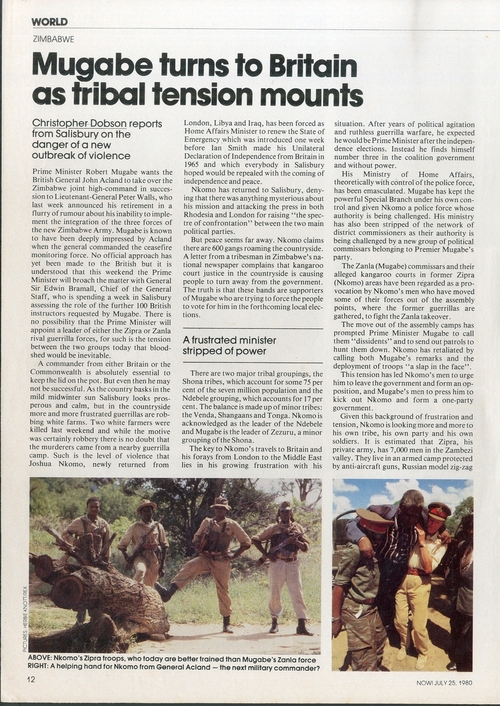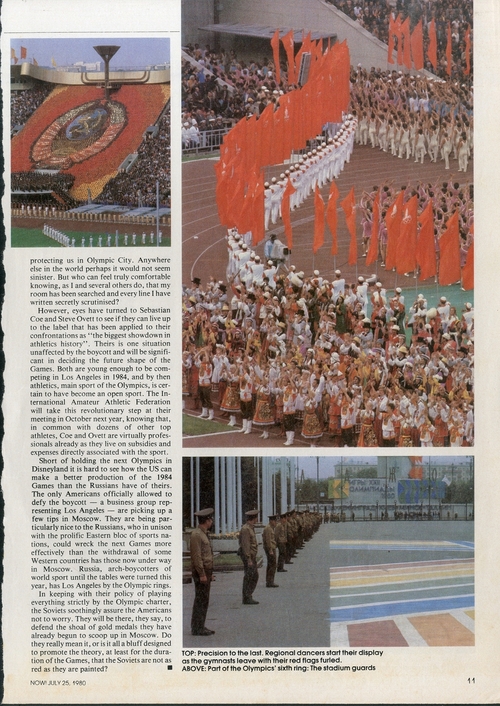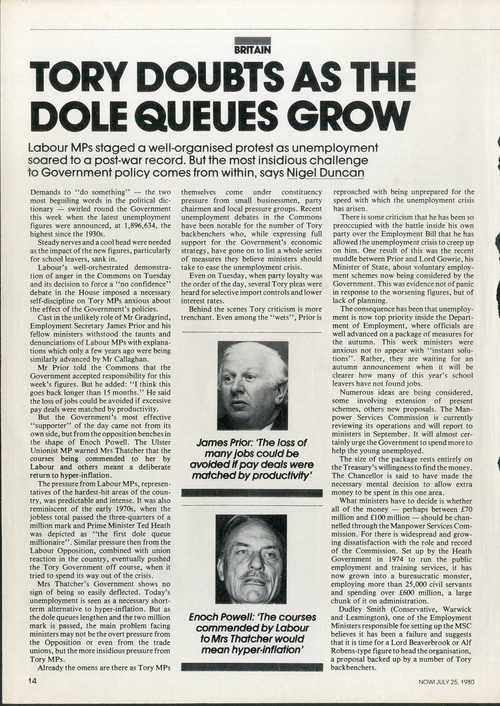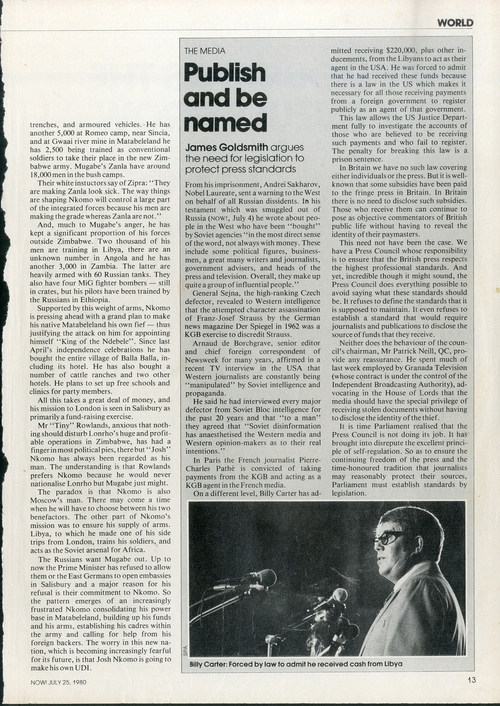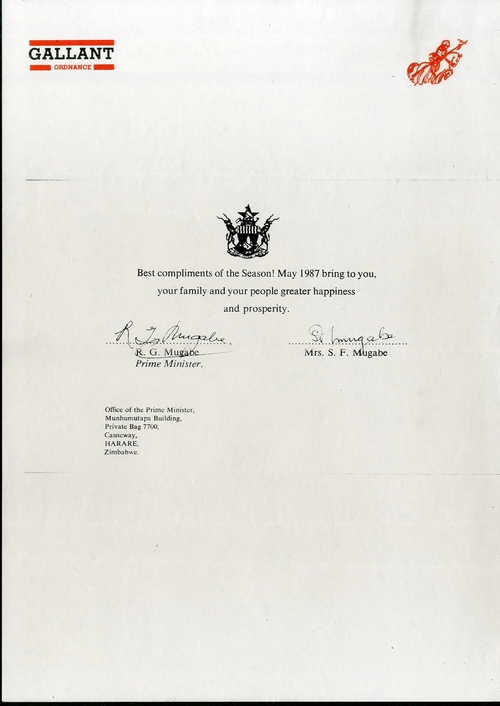Auction: 25003 - Orders, Decorations and Medals
Lot: 183
Sold By Order of a Direct Descendant
The unique Rhodesian Monitoring Force K.C.B., C.B.E. group of eight awarded to Major-General Sir J. H. B. Acland, Scots Guards, who was fortunate to survive a guerilla ambush in Malaya whilst still a subaltern and went on to have a high-profile career, the highlight of which was commanding the 1,500-strong Commonwealth Monitoring Force which oversaw the first democratic elections in what is now Zimbabwe, they were tasked with keeping the peace between the Rhodesian Security Forces and 22,500 heavily armed guerrillas, a near-impossible feat which they achieved with huge success, heralding the end of the violent Rhodesian Civil War
The Most Honourable Order of the Bath, Knight Commander's (K.C.B.) set of Insignia, neck Badge, silver-gilt and enamel; breast Star, silver-gilt and enamel, with gold retaining pin; The Most Excellent Order of the British Empire, Commander's (C.B.E.) neck Badge, silver-gilt and enamel; General Service 1918-62, 1 clasp, Malaya (2/Lt. J. H. B. Acland SG. Duplicate); General Service 1962-2007, 1 clasp, Northern Ireland (Lt Col J. H. B. Acland SG.); Jubilee 1977; Rhodesia 1980 (Maj Gen J.H.B. Acland Staff); Zimbabwe Independence Medal 1980, officially numbered (0170), the first four campaign awards mounted court-style as worn, the last mounted separately for wear, the C.B.E. somewhat worn, otherwise slightly polished, very fine overall (8)
K.C.B. London Gazette 14 June 1980.
C.B.E. London Gazette 3 June 1978.
John Hugh Bevil Acland was born in London on 26 November 1928, the son of Brigadier Peter and Bridget Acland. Offered a place at Oxford University he instead opted for the army, being commissioned 2nd Lieutenant on 22 December 1948.
Malaya- First Engagements
Posted to Malaya the next year he served as a Platoon Commander conducting dangerous patrols in the insurgent held jungles and by family tradition survived a guerilla ambush when a live grenade landed at his feet and failed to explode.
A typed manuscript titled Dauwin's Charm relates a story of Acland's time in Malaya in which his local guide, Duawin, lost a favoured charm, necessitating a dangerous patrol to find it and keep the guide on side. The manuscript includes several interesting observations on the nature of jungle warfare from the point of view of a junior officer and patrol leader as well as an unusual commentary on the nature of relations between the British and those Malays who fought alongside them. It states:
'We cut our way in for two or three hours, our green uniforms black with sweat, and the packs becoming ever heavier on our backs, and came to a large stream which we crossed. The jungle on the far side was slightly thinner and as we climbed the slope the visibility opened to some ten or fifteen yards. It was just the sort of place for a bandit camp. Suddenly Dauwin, who was immediately behind me, gave a sharp hiss and stopped. The muzzles of weapons rose, and each man strained eyes and ears to detect the smallest sound or movement. The seconds passed, noone [SIC] approached, there was no sudden staccato rattle of rifle or machine gun fire, and then Dauwin- after a pause of nearly half a minute- threw down his rifle, drew his parang and scuttled into the green blackness of the jungle to his left. Calling a bren-gunner to follow me, I plunged after him. He crashed along, on and on, steadily gaining and then, after what seemed a long, long distance (we paced it out afterwards and it was 520 yards) he threw himself on the ground. After a few moments I came up with him. I found him on his knees, rocking to and fro, his face one great beaming smile, holding in his cupped hands- his charm.'
Career Soldier
Promoted Lieutenant on 22 December 1950 he returned to Britain in 1951, seeing some action during the Cyprus Emergency and having further postings in Egypt and Germany. Advanced to Captain, Acland was appointed Equerry to Prince Henry of Gloucester. His role there centred around the co-ordination of HRH's programme and dealing with a wide variety of agencies from politicians.
Joining the Army Staff College at Camberley in 1958 he graduated and was appointed to a Staff role in Ministry of Defence chairing the committee on staffing and organisation. Acland's own memoires note service in Kenya and Zanzibar, although it appears that he was not in the former country during the Mau Mau insurgency. He was certainly present at Zanzibar as the last military commander prior to Independence, being part of the council which controlled the island along with the British Resident and Commissioner of Police.
Promoted Major on 22 December 1961 and Lieutenant-Colonel on 30 June 1971, he served as Brigade-Major of the 4th Guards Brigade with British Army of the Rhine. Appointed to command the Second Battalion Scots Guards, Acland was to be their C.O. for three years. The battalion spent time in Britain, Germany and Libya during that time as well as Northern Ireland where they earned entitlement to the General Service Medal. By his own account Acland found that these short and fast moves created a great many problems with morale and efficiency.
It was at this point that the proposed reduction in infantry battalions in the Army was mooted and Acland spoke out against this repeatedly. Having exhausted every other option, he wrote a letter to The Times making public his arguments, but marking the letter 'Not for Publication' knowing that the newspaper would go ahead anyway. The letter caused a disproportionate degree of excitement in the MOD. Having broken regulations, Acland, who excelled in active postings, was punished by being given a desk job and might have lost his position completely had not the decisions he had argued against been reversed soon after. He was advanced Colonel on 31 December 1967 and for the next eight years worked within the Ministry of Defence, taking part, albeit reluctantly, in the controversial Defence Review.
Acland was promoted Brigadier on 30 June 1975 and soon received another active posting to Cyprus with the role of Commander, Land Forces in 1976. This was a mere 18 months after the Turkish invasion and naturally the whole island was still very much in a state of turmoil. Here he was responsible for some 3,000 British troops in their two sovereign bases. Negotiating with the Greeks right up to the Presidential level and the Turks up to the level of Corp Commander, he was instrumental in keeping the ceasefire in place. It was for his success in this role - which saw Cyprus not only at peace as well as ensuring that Britain retained the capacity to train and operate from the island - that he was appointed to the C.B.E. with a promotion to Major-General on 1 April 1978.
Assuming command of the South-West District in 1978 Acland was now responsible for a combined force of around 40,000 soldiers and civilians - including Territorials and Cadets. His experience of controlling these large forces and the diplomatic and administrative issues involved would shortly to stand him in good stead.
Rhodesia- keeping the peace
After prolonged negotiations, the black majority parties in Rhodesia reached agreement with the British Government and the white minority led by Ian Smith for Britain to resume responsibility for governing Rhodesia while elections were held. Warned that he might be ordered to Rhodesia on 'Guy Fawkes night' 1979 Acland was indeed selected to command the British Monitoring Force ordered to the country in the wake of the ceasefire, reporting to the newly appointed Governor, Christopher (later Lord) Soames. The huge challenge of overseeing a peaceful handover of power after a long and bitter civil war can hardly be overstated. It is perhaps best underlined by a short note written to Acland from Field Marshal Lord Carver when the news of his posting was made public, simply saying:
'Dear John,
Good luck, you'll need it!'
His work in the country was outlined well an obituary printed in The Times on 23 November 2006, which states:
'Acland toured the outposts of the forest edge tirelessly, greeting the guerillas who had been persuaded to leave the forest and hand over their arms, and visiting them in their hastily erected camps to instil confidence in 'the democratic process'. In Salisbury (now Harare), Acland was able to provide up-to-the-minute advice to the Governor in his capacity as chairman of the Ceasefire Commission. Acland's relationship with Soames, not a man to welcome others' counsel, proved effective. His relationships with the white hierarchy in Salisbury, many of whom felt their personal situation threatened, varied from intensely warm to coldly formal, but these were extraordinary times.'
Acland's memoirs provide a candid view of the work, stating:
'Leaving aside the logistic difficulties, the most intractable problem that I personally had to overcome as the breaking down of the suspicion, hostility and indeed hatred which existed between the three sides as a result of seven years of the most vicious and bloody war. Curiously, Nkomo, Mugabe and their subordinates were much more inclined to reconciliation and reason than were the white Rhodesians in charge of the country, although the white farming and business communities recognised the realities of life very much more clearly than those who were in charge of their country's affairs. In the event, time and again, critical situations which appeared to be about to lead to a breakdown of the ceasefire and therefore of the whole process that the Government had set in train through the Lancaster House negotiations, were solved at the 11th hour as a result of the persuasion and pressures that I sought to put upon Walls, Mugabe, Nkomo or their subordinate commanders. In this process I was not much assisted during the first 6 or 8 weeks by the Governor or senior Foreign Office officials present; and it was not really until we had been in the country for some 2 months, with the Ceasefire apparently holding and the election process well under way, that they came into their own.'
Perhaps the greatest problem faced by the force was logistical as with limited support from the Rhodesian Government, Acland had to supply not only his men but also the 22,500 rebel fighters coming in from the bush. This they did with support from the R.A.F. and with their own helicopters but it was a herculean task, the rebels did not trust the British and assembling away from their bases in the jungle added a great deal of strain to this mistrust. Acland did everything possible to alleviate the conditions at the assembly places, providing tents, medical supplies and food. They flew in beef from South Africa, clothes from Hong Kong and tents from America even going so far as to buy supplies locally where needed.
The success of the force was summed up by the Daily Telegraph on 7 March 1980, which states:
'Whatever argument there may be about the wisdom or propriety of the British political decisions which have led to the coming to power in Zimbabwe Rhodesia of the allegedly "Marxist" Mr Mugabe and his followers, Britain at least has nothing to be ashamed of about the way the election ring was held. The comparative handful of British soldiers, airmen and policemen deployed through-out the country for this purpose and now returning deserve much credit. Some people are apt to sneer that the only thing Britain still does better than any other country in the world is the staging of military ceremonial for State occasions such as Trooping the Colour or funerals of great statesmen. The Rhodesian operation was no mere ceremonial. The British have not lost their touch when person- to-person contact and organisation are concerned and are all-important.'
Returning to the command of the South West District, Acland lamented the continued problems of finance and staffing which had so plagued him before leaving for Rhodesia. Retiring on 7 May 1982 he died at Honiton, Devon on 17 November 2006; Sold together with copied research and an archive of original material comprising:
i)
A practice grenade with a name plaque engraved 'K's Man from Cde. C Rhodesia 1980'
ii)
A document typed by the recipient titled: 'The Commonwealth Monitoring Force Zimbabwe/Rhodesia 1979-1980' summarising the campaign and its lessons.
iii)
A typed career summary by the recipient titled: 'Major General Sir John Acland KCB CBE'.
iv)
A typed story relating to the recipient's time in Malaya entitled: 'Dauwin's Charm'.
v)
Two newspaper extracts relating to the recipient's time in Rhodesia.
vi)
A copy of The Guards Magazine containing an article written by the recipient on his Rhodesian command.
vii)
Two photographs of the recipient, one a portrait.
viii)
A letter from Windsor Castle written on behalf of Queen Elizabeth II, commending the recipient on his successful command in Rhodesia.
For the recipient's miniature awards see Lot 310 and for the Wahaika War Club presented to the recipient by the New Zealand Contingent, Rhodesian Observation Force see Lot 184.
Subject to 20% VAT on Buyer’s Premium. For more information please view Terms and Conditions for Buyers.
Sold for
£10,000
Starting price
£8000

